Behind the bars: How NSW Corrective Services officers search prison cells for contraband
It is a specialist team which, using the element of surprise, raid prison cells across NSW searching for drugs, weapons and mobile phones. Watch exclusive behind the scenes vision of the officers in action.
Local
Don't miss out on the headlines from Local. Followed categories will be added to My News.
Specialist officers from the state’s corrective services go under the cover of night, covertly and rapidly, into some of NSW’s most dangerous prisons on contraband raids, hunting for drugs, mobile phones and makeshift weapons.
The highly-trained officers responsible for the important job are supported by drug-detection dogs and are welcomed at prisons by a chorus of ‘cockatoo calls’ from inmates on lookout.
“We conduct regular searches looking for contraband, basically anything that is going to compromise the security of a centre,” said senior assistant Superintendent Ken Southern, commander of Corrective Services NSW (CSNSW) northern NSW Security Operations Group (SOG).
“Often we come in at night or very early in the morning, irregular times, to keep inmates guessing.”
SOG work with corrective officers across the state’s prisons – from Goulburn to Tweed – to ensure safety.
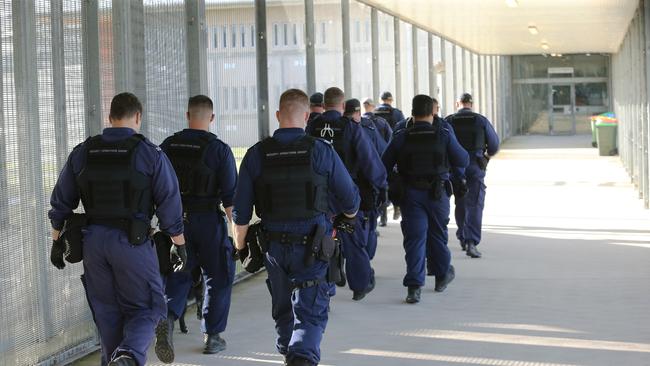
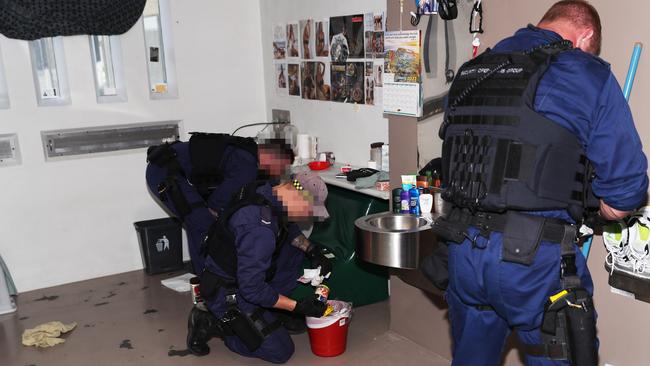
“Our teams deal with everything,” Superintendent Southern said.
“You might have a situation where we have a hostage threat, or inmates on the roof – we’ve got a host of specialist teams.”
Shortland Correctional Centre contraband raid
Media were allowed behind the scenes with SOG officers at a recent targeted contraband raid at Shortland Correctional Centre at Cessnock to understand the facets of an operation.
Officers discovered a makeshift shiv hidden inside an old condom dispenser as well as a strip of buprenorphine found ‘internally’ inside an inmate, while previous raids and intercepts at the prison uncovered a further 156 strips on an inmate’s visitor, makeshift weaponry, valium, tobacco, a tattoo gun and even a bong.
Buprenorphine, or ‘bupe’, is an opioid typically used as a heroin or methadone replacement and although it is sold for about $25 a strip at pharmacies, a strip inside could set you back close to $2000.
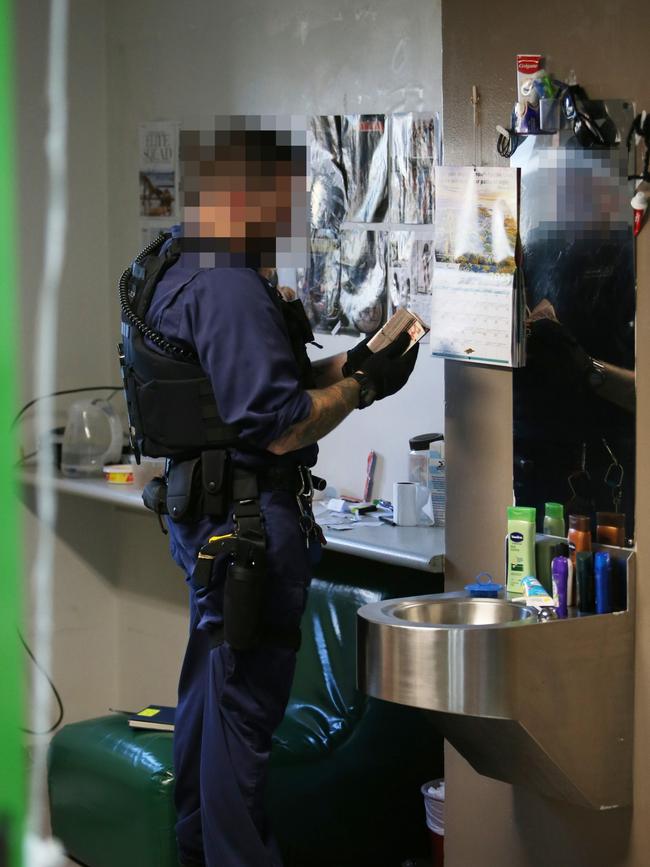
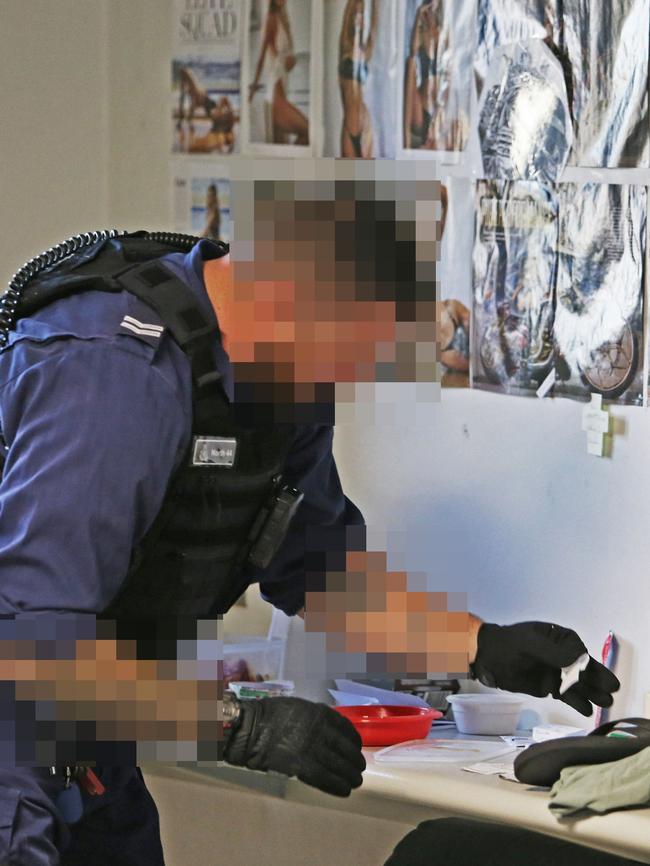
SOG officers conduct covert and rapid contraband raids, targeting inmates suspected to be in possession of drugs – the most common is strips of buprenorphine – and mobile phones. Officers will rapidly descend into the complex’s pods to find and confiscate contraband.
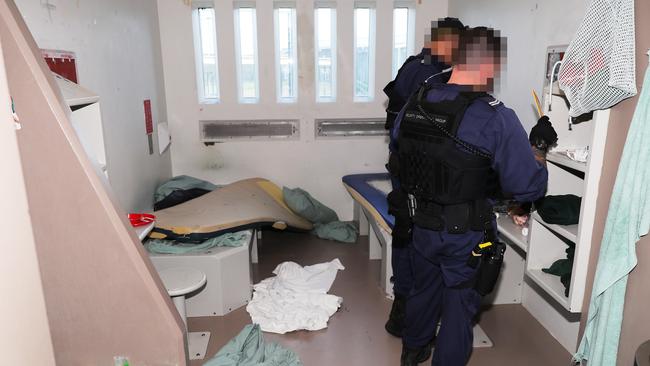
If found, that inmate could face segregation, internal charges, withdrawal of privileges or additional criminal charges, depending on the items seized.
Mobile phones
“The biggest thing at the moment are mobile phones,” Superintendent Southern said.
Buying drugs is a cashless exercise inside, so a mobile phone and the ability to arrange money transfers or drug drops is a coveted item.
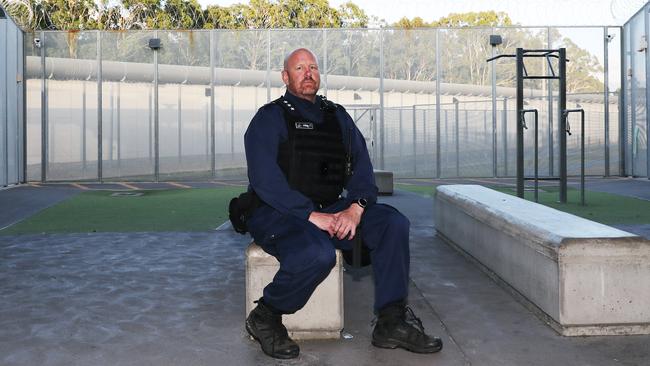
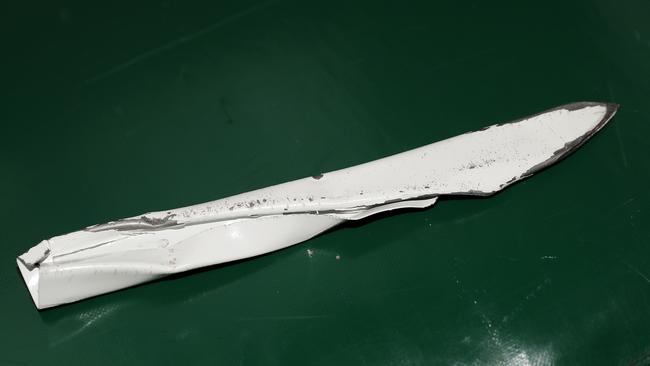
“They can co-ordinate with the outside on a mobile, that’s what makes them valuable to inmates and harder for us to track intel,” Superintendent Southern said.
“The inmate can give people on the outside the green light to throw contraband over the fence with a mobile phone.”
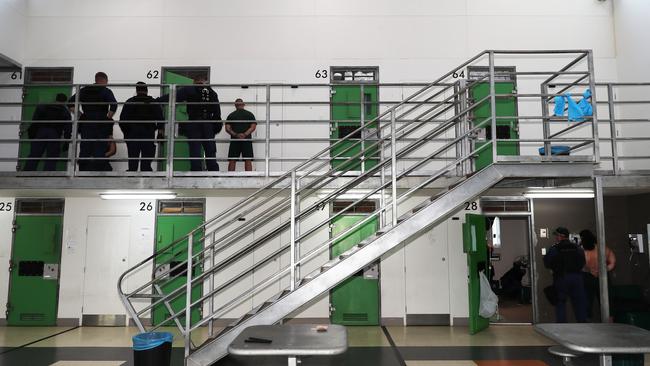
Superintendent Southern said there were cases of people using tennis ball throwers to catapult contraband over the fence, which was then hurriedly picked up and hidden or distributed by an inmate.
“If we can confiscate them, we can then analyse the phone and work out any connections to drug networks or organised crime, so they are quite valuable to us,” he said.
‘Cockatoos’ and the dry room
The rapid operations are so covert that only a few people at the prison, sometimes only the governor, know SOG are coming.
“You’ll hear a ‘cockatoo call’ to warn inmates holding contraband to flush it or secrete it internally,” Superintendent Southern said.
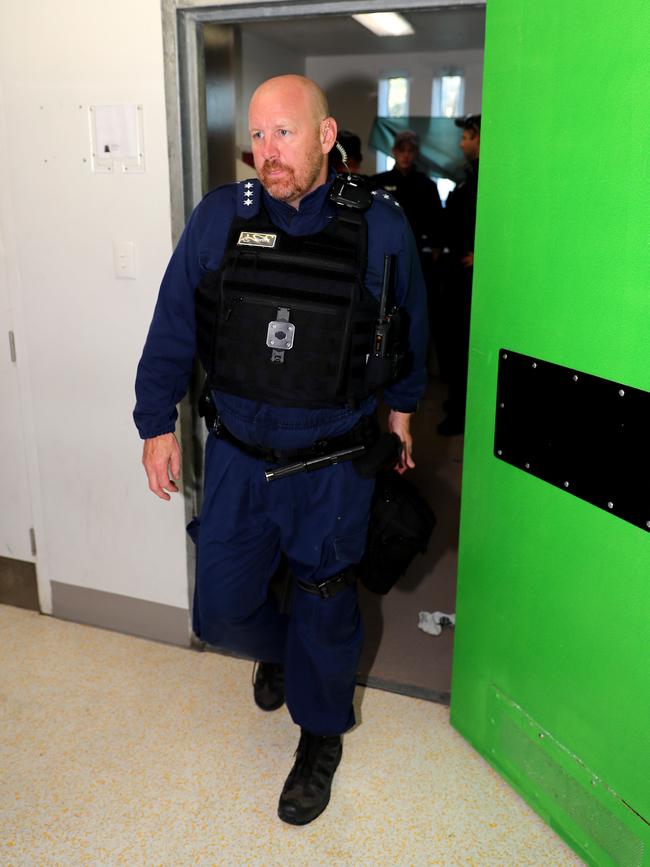
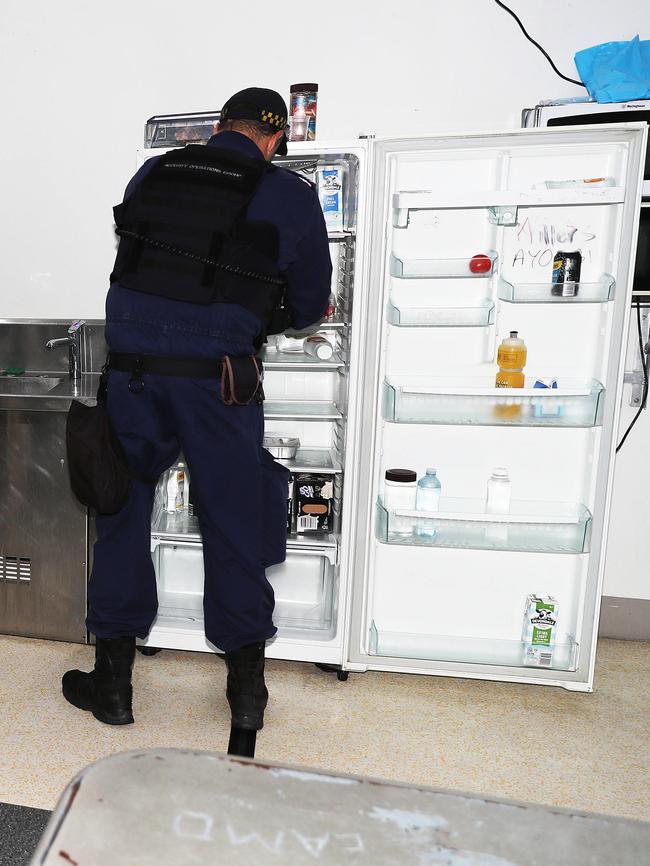
Designated inmates – called ‘cockatoos’ – will keep a lookout and when they spot the officers they will shout “red light” to warn their fellow inmates to get rid of any contraband. After the call, a chorus of toilet flushing is commonly heard.
“That’s the signal to the inmates to lose the drugs, so that’s why we come in as quickly as we can,” Superintendent Southern said.
If they don’t flush it, inmates will try to hide the contraband ‘internally’.
“We have body scanners which will pick up anything we think is being hidden internally,” Superintendent Southern said.
In 2020, CSNSW invested $15m into new and more body scanning technology to aid officers in finding contraband.
If an inmate still refuses to give up whatever is hidden they’ll be taken to a ‘dry room’ – a video-monitored cell with no running water so they can’t dispose of it via a toilet flush – which can often prompt them to finally hand in the contraband.
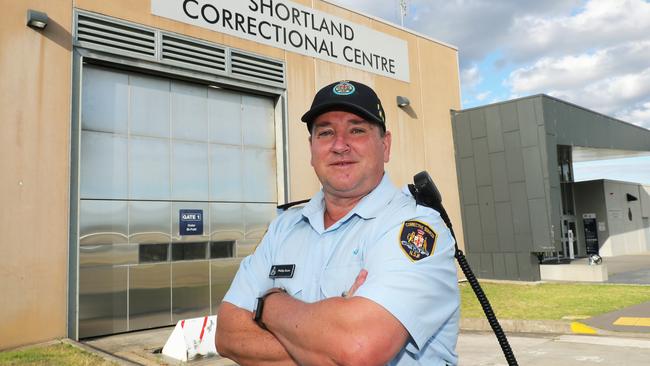
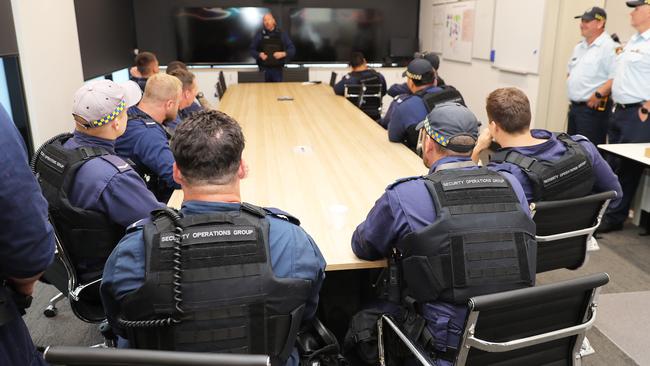
Shortland Correctional Centre acting governor Phil Dunn said the complex’s officers work to aid SOG teams in identifying contraband targets.
“We have our own teams that search daily for contraband, but we rely upon SOG to assist us in special operations that go and conduct a targeted search,” he said.
“Once our staff get information, we liaise with SOG to come up with an operational plan to help target a number of inmates that are of a specific interest.”
Mr Dunn said the relationship between the daily staff and SOG officers was vital to the safe running of Shortland.
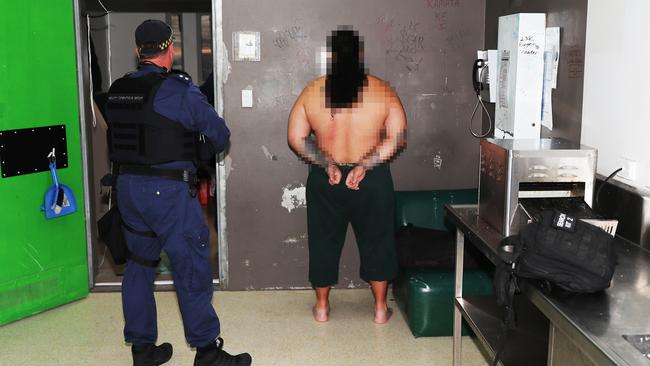
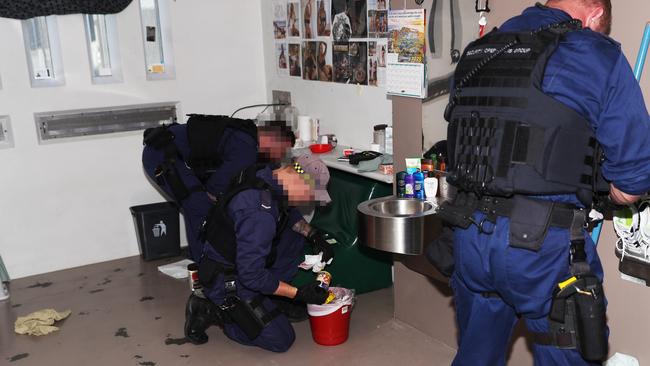
“It’s very important to the centre and our operations, contraband makes the centre a less secure and safe place,” he said.
“We use every bit of information from staff on the ground who monitor CCTV footage, telephone calls and the inmates to build an overall picture.”
Drones and fake mail
Other than a good old throw, there are other ways for inmates to get drugs or mobiles into the prison system, all of which are being closely monitored and clamped down on by CSNSW.
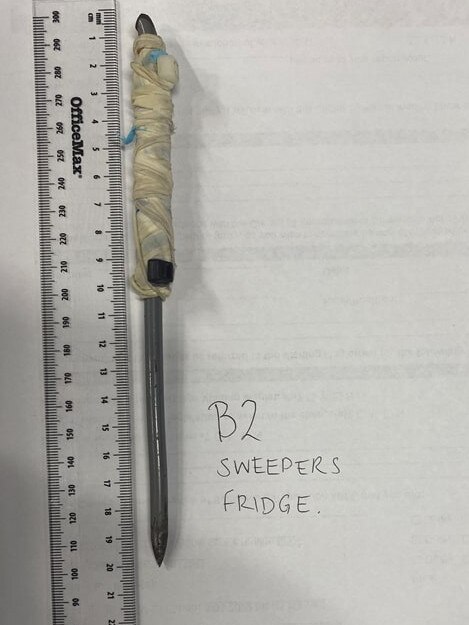
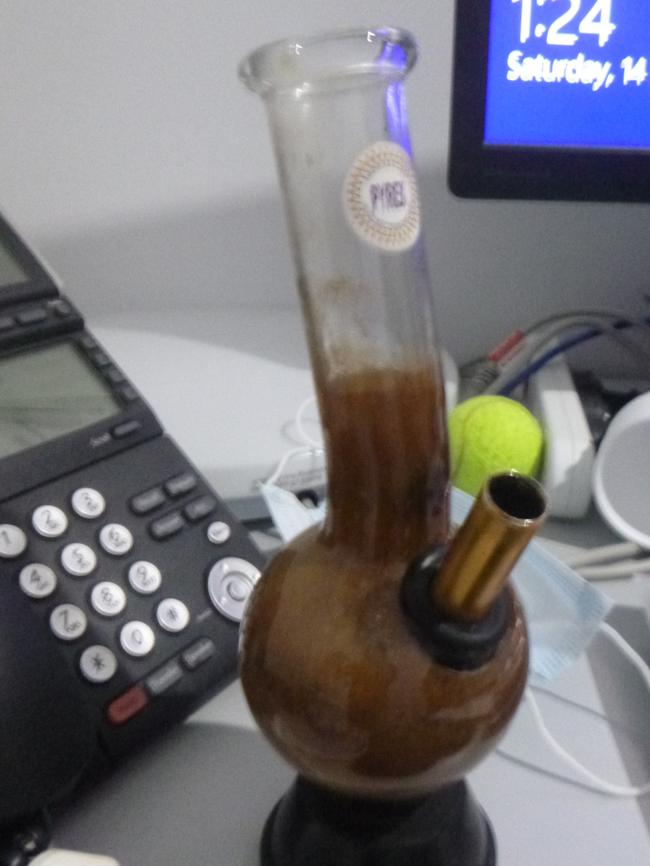
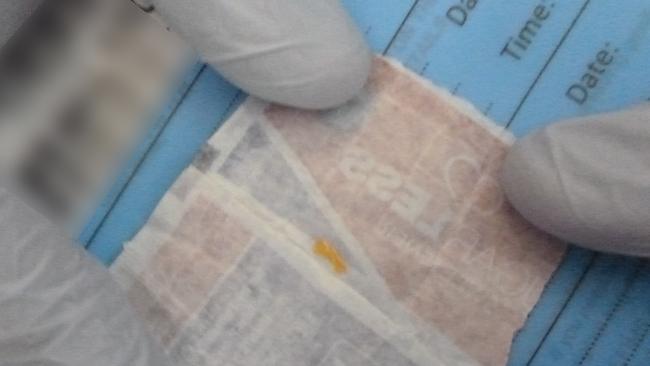
Drones are another method, although attempts generally have a high chance of failure, especially with geo-tagged fences at a lot of corrective centres which new drones are programmed not to fly near.
Drugs or mobiles hidden within mail is another route, with strips of bupe often found hidden in cut-outs of large, fake, legal documents. However, since September 2020, CSNSW has photocopied all non-privileged inmate mail in an effort to prevent contraband entering prisons.
Since its introduction, there has been an increase in discoveries and seizures of fake legal mail containing contraband.
“We look at finding and reducing all contraband,” Mr Dunn said. “And contraband doesn’t just affect the safety of our staff, but it can impact the security of inmates, too.”





